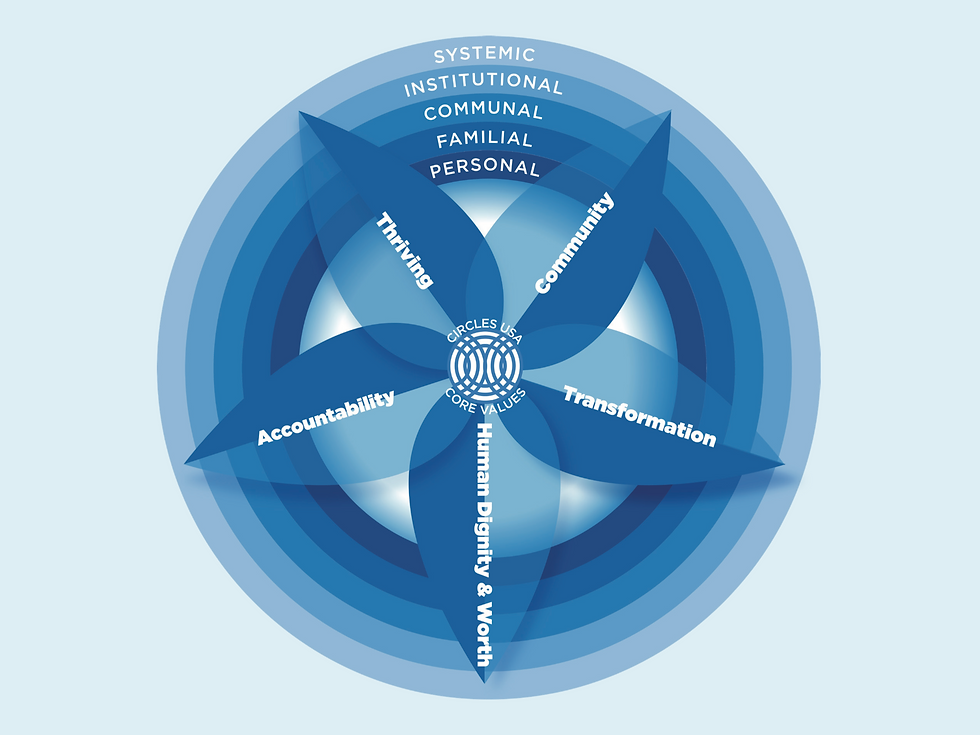People Hear the Call to Adventure Differently
- Apr 24, 2020
- 3 min read
Updated: Oct 6, 2024
How one hears the call to adventure is influenced by one’s belief system about how the world operates. In early 2001, a national poll conducted by National Public Radio (NPR), the Kaiser Family Foundation, and Harvard University’s Kennedy School asked nearly 2,000 Americans aged 18 or older, “Which is the bigger cause of poverty today: that people are not doing enough to help themselves out of poverty, or that circumstances beyond their control cause them to be poor?” Respondents were roughly equally divided between “people not doing enough” (48%) and “circumstances” (45%).
A 2016 poll conducted by the LA Times and the conservative think tank American Enterprise showed similar results in terms of who or what is responsible for poverty — but with interesting nuances. For example, White blue-collar workers were more likely to blame the poor for their situation than Whites with college educations. When it comes to solutions, the study showed that more Blacks than Whites believed that government programs put people back on their feet and allowed them to get jobs and out of poverty. A majority of Whites believed that government programs create dependency and encourage people to stay poor. People in poverty believed that government programs fail primarily because not enough money had been put into them. More affluent people than working-class people believe that government programs are badly designed.
When people first get involved in Circles USA, they usually have a strong set of opinions about why people are in poverty and what kind of help they need. What happens through their experience with Circles USA, however, often shifts these opinions over time more to the middle ground. Many people discover that it is the combination of self-responsibility and planning skills coupled with new support systems and better designed private and public programs that can best help people escape poverty.
Because people do not change their belief systems easily, and because our beliefs ultimately drive what we do as individuals, a community, and a nation about poverty, the beginning of the end of poverty must start with understanding our current beliefs. While we have books and training programs that can increase people’s awareness of their beliefs, the most important strategy of Circles USA is the opportunity to build healthy and effective relationships across socioeconomic class lines. We want people in poverty to get to know people of middle-income and upper income means. It is through these relationships that people challenge their assumptions and arrive at better, more informed views of poverty.
As a White suburban kid, my primary call to adventure was to chase the American Dream as defined by making money, buying a nice house, raising a family, taking fun vacations, and having a respectable career. I learned that shopping is good for the economy, more stuff equates to more happiness, and respect from others comes through higher income and net worth. While my parents were born during the Great Depression and had a deep respect for the value of a dollar, my surroundings screamed out to me that consumerism is the path to happiness. My worldview might have remained the same except that I fell into an emotional abyss trying to be an architecture student, a path that did not seem to be my calling or fit my talent. Through the confusion that followed my leaving the architectural program, I encountered several significant guides who challenged my thinking to its core.
In my mental model of the American Dream, people could make as much money as they wanted to if only, they applied themselves. Through this lens, I saw the United States as the greatest equal opportunity nation on Earth. It was a level playing field, and if you worked hard and played by the rules, you would inevitably achieve the promises of the American Dream. Being poor was largely the consequence of not putting enough effort into one’s goals. Enabling the poor with subsidies, for example, was not going to help them in the long run.
For the past 40 years, however, I have met countless everyday heroes who have heard the call to alleviate the suffering caused by poverty. Heroes who have big hearts, keen minds, tenacious personalities, compassionate ears, generosity beyond the norm, and an uncommon amount of common sense. I have been inspired by the thousands of everyday heroes who have humbly answered the call to adventure and forged new relationships with people who have either a lot more or a lot less money than they do. People join our work with Circles USA because they want to help someone else. The nation has a deep tradition of charity, goodwill, and a love-thy-neighbor attitude, and it is wonderfully evident throughout our network of Circles USA chapters across the country and in Canada as well.
Learn more: Transformational Leadership: A Framework to End Poverty ~ By Scott C. Miller
To learn more about Scott Miller, please see his website here.





Comments